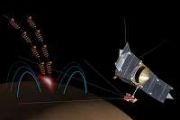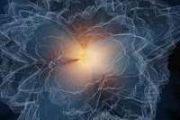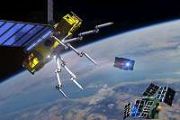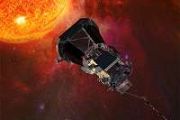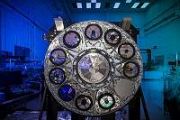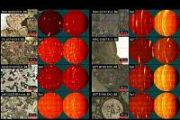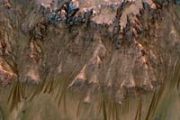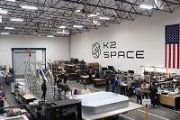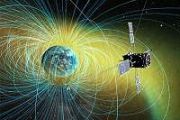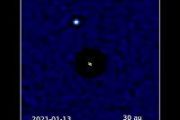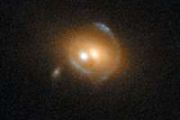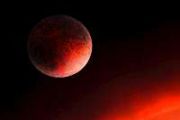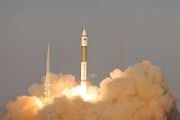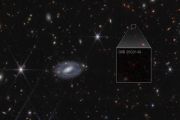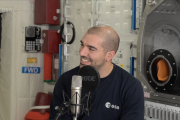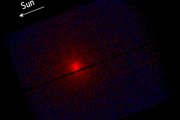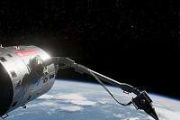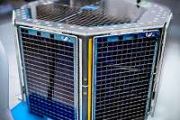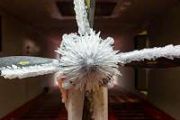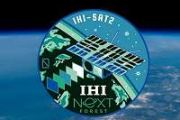
Copernical Team
Study explains how part of the nucleolus evolved
 Inside all living cells, loosely formed assemblies known as biomolecular condensates perform many critical functions. However, it is not well understood how proteins and other biomolecules come together to form these assemblies within cells.
MIT biologists have now discovered that a single scaffolding protein is responsible for the formation of one of these condensates, which forms within
Inside all living cells, loosely formed assemblies known as biomolecular condensates perform many critical functions. However, it is not well understood how proteins and other biomolecules come together to form these assemblies within cells.
MIT biologists have now discovered that a single scaffolding protein is responsible for the formation of one of these condensates, which forms within Approaching the Ridgetop - "Bermuda Triangle" Ahead: Sols 3923-3925
 Earth planning date: Friday, August 18, 2023: The Gediz Vallis Ridge has been a long-term, and, at times, seemingly impossible goal of the Curiosity Rover mission. Our path to it has repeatedly been diverted from our first difficult climb onto the Greenhugh Pediment way back in 2020, our dead-end foray onto and across the pediment through a steep side ravine of the Gediz Vallis, ultimately block
Earth planning date: Friday, August 18, 2023: The Gediz Vallis Ridge has been a long-term, and, at times, seemingly impossible goal of the Curiosity Rover mission. Our path to it has repeatedly been diverted from our first difficult climb onto the Greenhugh Pediment way back in 2020, our dead-end foray onto and across the pediment through a steep side ravine of the Gediz Vallis, ultimately block Local governments urged to boost remote sensing capabilities
 A senior environmental expert has called on local governments along the Yangtze River to improve their remote sensing-based aquatic ecological monitoring capabilities, as China plans to introduce an environmental evaluation and assessment mechanism that no longer focuses on pollution control in the basin of Asia's longest watercourse.
Based on pilot programs this year and the next, the nat
A senior environmental expert has called on local governments along the Yangtze River to improve their remote sensing-based aquatic ecological monitoring capabilities, as China plans to introduce an environmental evaluation and assessment mechanism that no longer focuses on pollution control in the basin of Asia's longest watercourse.
Based on pilot programs this year and the next, the nat Planet Labs secures deal with an Asian Ministry of Foreign Affairs
 In a recent development in the realm of Earth observation technology, Planet Labs PBC (NYSE: PL) revealed that they have clinched a contract to offer their global daily monitoring solution to a Ministry of Foreign Affairs in Asia. This high-value deal comes with a seven-figure annual contract value, emphasizing the significance of the collaboration.
For those unfamiliar with the industry b
In a recent development in the realm of Earth observation technology, Planet Labs PBC (NYSE: PL) revealed that they have clinched a contract to offer their global daily monitoring solution to a Ministry of Foreign Affairs in Asia. This high-value deal comes with a seven-figure annual contract value, emphasizing the significance of the collaboration.
For those unfamiliar with the industry b US Space Force boosts resilience with Capella Federal's satellite services contract
 The satellite realm experienced a significant development as Capella Federal, a prominent subsidiary of Capella Space, secured a contract for Proliferated Low Earth Orbit Satellite-Based Services (PLEO) via the U.S. Space Systems Command (SSC). This landmark contract facilitates a faster collaboration process between Capella, SSC, and the U.S. Space Force, aiming to widen the availability of rou
The satellite realm experienced a significant development as Capella Federal, a prominent subsidiary of Capella Space, secured a contract for Proliferated Low Earth Orbit Satellite-Based Services (PLEO) via the U.S. Space Systems Command (SSC). This landmark contract facilitates a faster collaboration process between Capella, SSC, and the U.S. Space Force, aiming to widen the availability of rou Land Surveyor 4A satellite enters preset orbit
 The Land Surveyor 4A, the world's first synthetic aperture radar satellite in high-altitude orbit, has successfully moved into its preset orbital position and has unfolded its radar antennas, according to the China National Space Administration.
Dedicated to natural disaster prevention and mitigation, the remote-sensing satellite was carried into orbit on a Long March 3B rocket that was la
The Land Surveyor 4A, the world's first synthetic aperture radar satellite in high-altitude orbit, has successfully moved into its preset orbital position and has unfolded its radar antennas, according to the China National Space Administration.
Dedicated to natural disaster prevention and mitigation, the remote-sensing satellite was carried into orbit on a Long March 3B rocket that was la Alternative models could clarify Universe's expansion debate
 The quest for the true value of the Hubble constant (H0) tension which gives a measure of the current expansion of the Universe is still on. The fervent debate today is about the discrepancy between the H0 values obtained from type Ia supernovae (SNe Ia) and from the Cosmic Microwave Background Radiation (CMB), a radiation emitted from the early Universe close to its origin.
Because of thi
The quest for the true value of the Hubble constant (H0) tension which gives a measure of the current expansion of the Universe is still on. The fervent debate today is about the discrepancy between the H0 values obtained from type Ia supernovae (SNe Ia) and from the Cosmic Microwave Background Radiation (CMB), a radiation emitted from the early Universe close to its origin.
Because of thi Getting ready for Huginn
 Video:
00:02:47
Video:
00:02:47
Crew-7 has arrived at NASA’s Kennedy Space Center in Florida, USA, in the run-up to the International Space Station launch.
Crew-7 consists of ESA astronaut Andreas Mogensen, taking the role of Dragon spacecraft pilot, NASA astronaut Jasmin Moghbeli is commander, Satoshi Furukawa from JAXA and Konstantin Borisov from Roscomos are mission specialists.
This video shows scenes of Crew-7 arriving at the Kennedy Space Center, during launch rehearsal, and Andreas Mogensen training for his mission in space.
Andreas and Crew-7 will launch in the SpaceX Crew Dragon spacecraft Endurance from launch pad 39A. This is the launch pad for all crewed
Space travel depletes red blood cells and bone, but fats may help
 A study of 14 astronauts suggests that while space travel depletes red blood cells and bone, the body can eventually replenish them back on Earth with the help of fat stored in the bone marrow. The study, published in Nature Communications, has important implications for health in space and on Earth.
"We found that astronauts had significantly less fat in their bone marrow about a month af
A study of 14 astronauts suggests that while space travel depletes red blood cells and bone, the body can eventually replenish them back on Earth with the help of fat stored in the bone marrow. The study, published in Nature Communications, has important implications for health in space and on Earth.
"We found that astronauts had significantly less fat in their bone marrow about a month af Listening for "sounds" from the far corners of space
 Scientists spectacularly confirmed the existence of gravitational waves several years ago, but now they are searching the cosmos for new and different types of these waves that result from different objects in deep space.
Benjamin Owen, a professor in the Department of Physics and Astronomy at Texas Tech University, was recently awarded a three-year National Science Foundation (NSF) grant
Scientists spectacularly confirmed the existence of gravitational waves several years ago, but now they are searching the cosmos for new and different types of these waves that result from different objects in deep space.
Benjamin Owen, a professor in the Department of Physics and Astronomy at Texas Tech University, was recently awarded a three-year National Science Foundation (NSF) grant 


